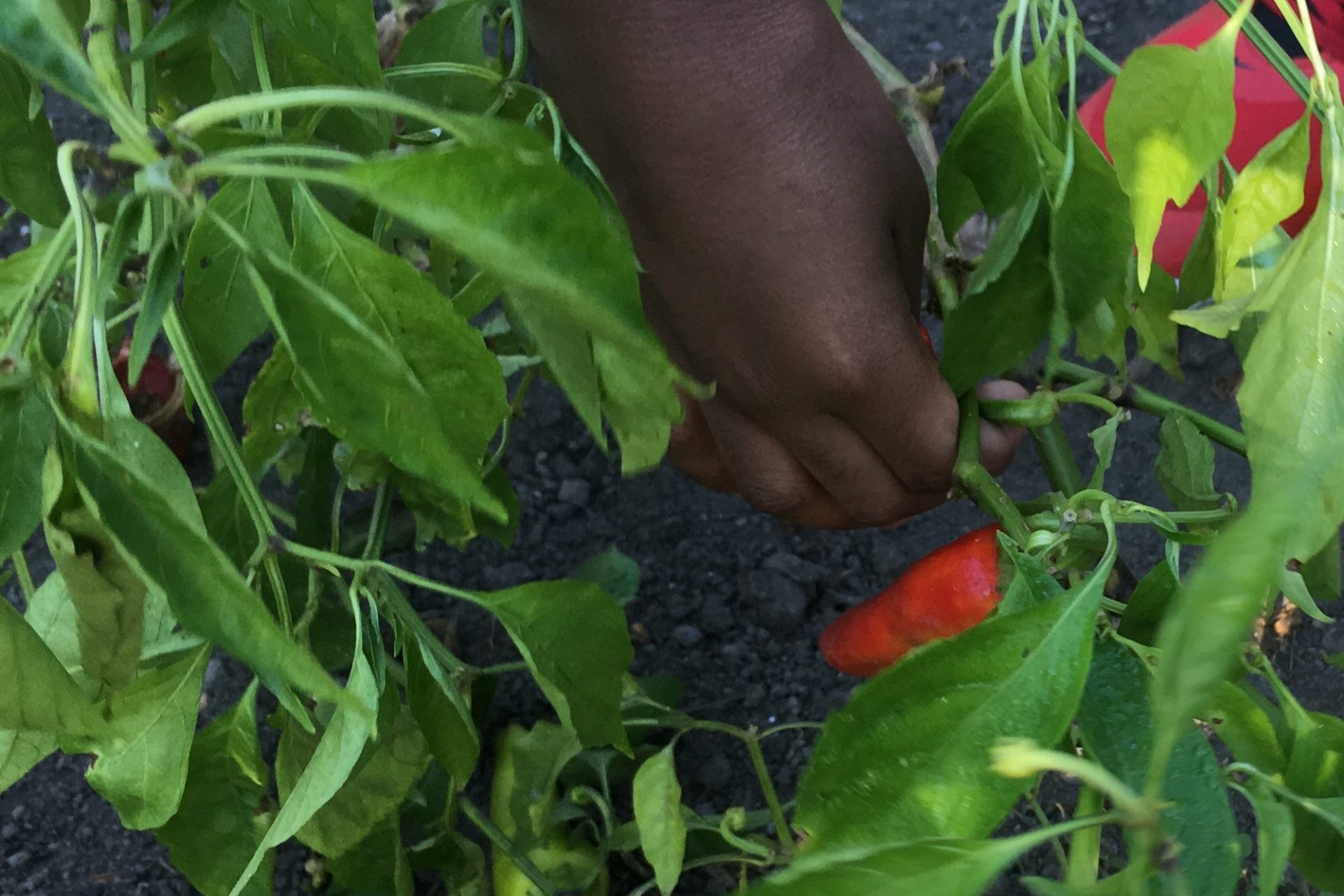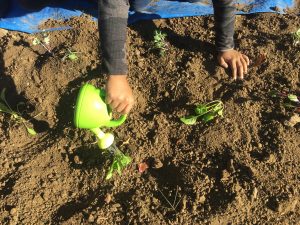Reflecting on Seasons, Connecting to Our Food System

by Anne Rosenthal, Farm to School Specialist – Great Kids Farm, Baltimore City Public Schools
When elementary schoolers arrive on our farm, we encourage them to use their detective skills to solve an important mystery: which season is coming!? Students are eager to share their discoveries; they hear crunchy leaves underfoot, see vibrant colors in our trees, and feel chilly breezes across their cheeks.
Lucky to count fields as classrooms, we farm-to-school educators would be remiss not to invite students to embrace the natural changes around us.
On pollination: In spring and summer months, we teach about pollination by observing bees and butterflies, and students ask about the seeds of the juicy watermelon they taste. Now that autumn is here, students build pollinator hotels for those insects, and different seeds steal the spotlight: popcorn kernels.
On harvest: When temperatures are warm, students tug cherry tomatoes off the vine and peppers out of our pizza garden. Now that Baltimore’s first frost is imminent, students dig for sweet potatoes and taste lettuce from our greenhouses.
Beyond Great Kids Farm, the rhythm of the school year does not always allow students to appreciate the changing of the seasons. Expecting students to take reflection one step further – and think about the ways changing seasons may affect their food system – seems completely unreasonable…especially in Baltimore, a city where green space and local produce are far from accessible to all.
 When we teach students on farms and in kitchens, it is our duty to offer them space to reconnect with, recognize, and appreciate natural rhythms. In doing so, we can reinforce themes across disciplines: science lessons on plants’ needs, health and language arts units on good eating. What’s more, linking food systems to our environment can help instill healthy habits, curiosity about the natural world, and respect for our natural environment.
When we teach students on farms and in kitchens, it is our duty to offer them space to reconnect with, recognize, and appreciate natural rhythms. In doing so, we can reinforce themes across disciplines: science lessons on plants’ needs, health and language arts units on good eating. What’s more, linking food systems to our environment can help instill healthy habits, curiosity about the natural world, and respect for our natural environment.
Though farm and food educators are uniquely positioned to lead these lessons, we are not the only ones who can empower students to reflect on these themes. Staff who manage school gardens give students the tools (literal and figurative) to observe firsthand how seasonal changes affect what we can grow and harvest. Homegrown School Lunch Week, a fall campaign that highlights links between cafeteria food and local producers, is an opportunity for our broader Food & Nutrition Services staff to encourage students district-wide to consider their regional food system. This year during Homegrown School Lunch Week, Baltimore City School cafeterias featured local greens just like those planted by the Dickey Hill Elementary School 2nd graders during their Days of Taste trip to Great Kids Farm.
Especially in an age when seasonal changes do not necessarily affect the ways we travel, work, or spend time, it is easy to forget that our plates have anything to do with natural systems. Opportunities – perhaps firsts – to plant, to taste fruits right off the vine, and to walk through the woods can remind students of the fundamental importance of natural cycles. We hope that these experiences plant seeds of curiosity about the natural world and of lifelong habits that are good for our students, their families, and their planet.
